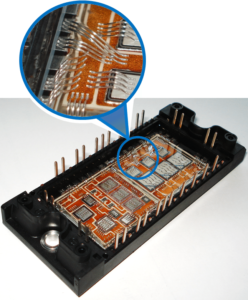 Copy MCU ATmega32A Software
Copy MCU ATmega32A Software
Copy MCU ATmega32A Software from master microcontroller ATmega32A program memory, and reprogramme the firmware into blank new Microprocessor ATmega32A for MCU cloning;

Copy MCU ATmega32A Software from master microcontroller ATmega32A program memory, and reprogramme the firmware into blank new Microprocessor ATmega32A for MCU cloning
Features
· High-performance, Low-power AVR® 8-bit Microcontroller
· Advanced RISC Architecture
– 131 Powerful Instructions – Most Single-clock Cycle Execution
– 32 x 8 General Purpose Working Registers
– Fully Static Operation
– Up to 16 MIPS Throughput at 16 MHz
– On-chip 2-cycle Multiplier
High Endurance Non-volatile Memory segments
– 32K Bytes of In-System Self-programmable Flash program memory after firmware MCU PIC16F84 extraction
– 1024 Bytes EEPROM
– 2K Byte Internal SRAM
– Write/Erase Cycles: 10,000 Flash/100,000 EEPROM
– Data retention: 20 years at 85°C/100 years at 25°C(1)
– Optional Boot Code Section with Independent Lock Bits
· In-System Programming by On-chip Boot Program
· True Read-While-Write Operation
– Programming Lock for Software Security
JTAG (IEEE std. 1149.1 Compliant) Interface
– Boundary-scan Capabilities According to the JTAG Standard
– Extensive On-chip Debug Support
– Programming of Flash, EEPROM, Fuses, and Lock Bits through the JTAG Interface
Peripheral Features
– Two 8-bit Timer/Counters with Separate Prescalers and Compare Modes
– One 16-bit Timer/Counter with Separate Prescaler, Compare Mode, and Capture Mode
– Real Time Counter with Separate Oscillator
– Four PWM Channels
– 8-channel, 10-bit ADC
· 8 Single-ended Channels
· 7 Differential Channels in TQFP Package Only
· 2 Differential Channels with Programmable Gain at 1x, 10x, or 200x
– Byte-oriented Two-wire Serial Interface
– Programmable Serial USART
– Master/Slave SPI Serial Interface
– Programmable Watchdog Timer with Separate On-chip Oscillator
– On-chip Analog Comparator
Special Microcontroller Features
– Power-on Reset and Programmable Brown-out Detection
– Internal Calibrated RC Oscillator
– External and Internal Interrupt Sources
– Six Sleep Modes: Idle, ADC Noise Reduction, Power-save, Power-down, Standby and Extended Standby
I/O and Packages
– 32 Programmable I/O Lines
– 40-pin PDIP, 44-lead TQFP, and 44-pad QFN/MLF
Operating Voltages
– 2.7 – 5.5V for ATmega32A
Speed Grades
– 0 – 16 MHz for ATmega32A
Power Consumption at 1 MHz, 3V, 25°C for ATmega32A
Summary
– Active: 0.6 mA
– Idle Mode: 0.2 mA
– Power-down Mode: < 1 µA